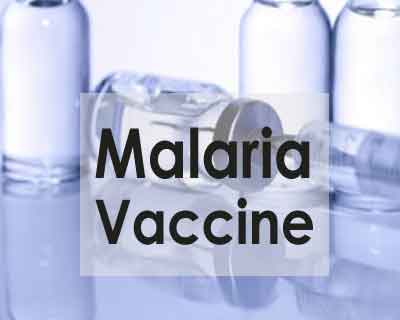- Home
- Editorial
- News
- Practice Guidelines
- Anesthesiology Guidelines
- Cancer Guidelines
- Cardiac Sciences Guidelines
- Critical Care Guidelines
- Dentistry Guidelines
- Dermatology Guidelines
- Diabetes and Endo Guidelines
- Diagnostics Guidelines
- ENT Guidelines
- Featured Practice Guidelines
- Gastroenterology Guidelines
- Geriatrics Guidelines
- Medicine Guidelines
- Nephrology Guidelines
- Neurosciences Guidelines
- Obs and Gynae Guidelines
- Ophthalmology Guidelines
- Orthopaedics Guidelines
- Paediatrics Guidelines
- Psychiatry Guidelines
- Pulmonology Guidelines
- Radiology Guidelines
- Surgery Guidelines
- Urology Guidelines
Why none of malaria vaccines are effective?

The discovery potentially paves way for more effective vaccines down the track.
NEW DELHI: Have you ever thought why none of the vaccines developed for malaria till date has protected against the disease for long? The scientists at QIMR Berghofer Medical Research Institute believe they have found the answer for this.
The discovery potentially paves way for more effective vaccines down the track.
Malaria is caused by parasites that are spread by mosquitoes.
Researchers have been trying to develop a successful vaccine for decades. However, even the most trialled vaccine remained effective even four years after immunisation in a small proportion of people.
Most of the vaccines that have been worked on have aimed to generate antibodies against the parasites.
Dr. Michelle Wykes, the head of the Molecular Immunology Laboratory, along with Joshua Horne-Debets and Deshapriya Karunarathne, found that activating immune cells known as CD8+ T cells was crucial in protecting mice against malaria in the longer term.
"This is the first time there has been evidence to show these immune cells are crucial for protecting against blood stage malaria - which is when symptoms start to show - in the long term. In other words, we've found that antibodies on their own aren't enough to maintain protection against malaria," said Dr. Wykes.
The World Health Organisation (WHO) estimates that malaria caused the deaths of 4,38,000 people and infected 214 million people worldwide in 2015.
NEW DELHI: Have you ever thought why none of the vaccines developed for malaria till date has protected against the disease for long? The scientists at QIMR Berghofer Medical Research Institute believe they have found the answer for this.
The discovery potentially paves way for more effective vaccines down the track.
Malaria is caused by parasites that are spread by mosquitoes.
Researchers have been trying to develop a successful vaccine for decades. However, even the most trialled vaccine remained effective even four years after immunisation in a small proportion of people.
Most of the vaccines that have been worked on have aimed to generate antibodies against the parasites.
Dr. Michelle Wykes, the head of the Molecular Immunology Laboratory, along with Joshua Horne-Debets and Deshapriya Karunarathne, found that activating immune cells known as CD8+ T cells was crucial in protecting mice against malaria in the longer term.
"This is the first time there has been evidence to show these immune cells are crucial for protecting against blood stage malaria - which is when symptoms start to show - in the long term. In other words, we've found that antibodies on their own aren't enough to maintain protection against malaria," said Dr. Wykes.
The World Health Organisation (WHO) estimates that malaria caused the deaths of 4,38,000 people and infected 214 million people worldwide in 2015.
CD8+ T cellsmalaria vaccinesMolecular Immunology LaboratoryQIMR Berghofer Medical Research InstituteWHOWorld Health Organisation
Source : ANINext Story
NO DATA FOUND

Disclaimer: This site is primarily intended for healthcare professionals. Any content/information on this website does not replace the advice of medical and/or health professionals and should not be construed as medical/diagnostic advice/endorsement or prescription. Use of this site is subject to our terms of use, privacy policy, advertisement policy. © 2020 Minerva Medical Treatment Pvt Ltd